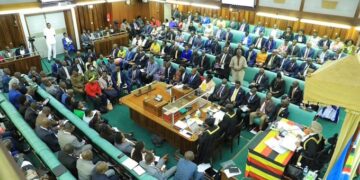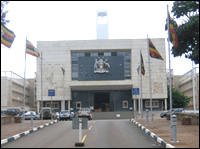BoU Rallies MPs to Support the Proposed Amendments in the Bank of Uganda Act of 2000
The Bank of Uganda has rallied members of parliament to support the proposed amendments in the Bank of Uganda Act of 2000 which is soon going to be tabled before parliament, seeking to harmonize leadership issues.
BoU officials noted that the Act is unconstitutional and too old to regulate the modern banking sector.
The executive director supervision of the Bank of Uganda Twinemanzi Tumumbweine told members of parliament that the banking sector is growing rapidly but the speed at which amendments of banking laws to align them with the banking trends is still very slow. He emphasized that the current banking laws are too old to regulate the current banking sector but their amendments take ages.
The central bank beseeched parliament to give special attention to financial legislation by adopting formula used in taxation laws which are amended every financial year during the budget cycle.
During a sensitization workshop for members of parliament on the mandate of the Bank of Uganda,BoU disclosed that it’s in the final touches of amending the Bank of Uganda Act of 2000 to rectify management issues of the central bank. This was after establishing ambiguities in the act which contravenes with provisions of the 1995 constitution.
The act provides for four board of directors, appointed by the line minister contrary to article 161 of the constitution which provides for five directors appointed by the president.
As parliament goes on to consider petroleum project bills to streamline the oil production sector after passing the East African Crude Oil Pipeline Project bill of 2021, the bank of Uganda has warned that Uganda’s oil is likely to become a curse if the laws being made don’t put in place strict regulations of expenditure of Oil revenue.
The central bank has also called on legislators to enact laws to provide quick dispute resolution mechanisms, saying over 4 trillion shillings are tied up in unresolved cases in courts of law which has frustrated economic development.














